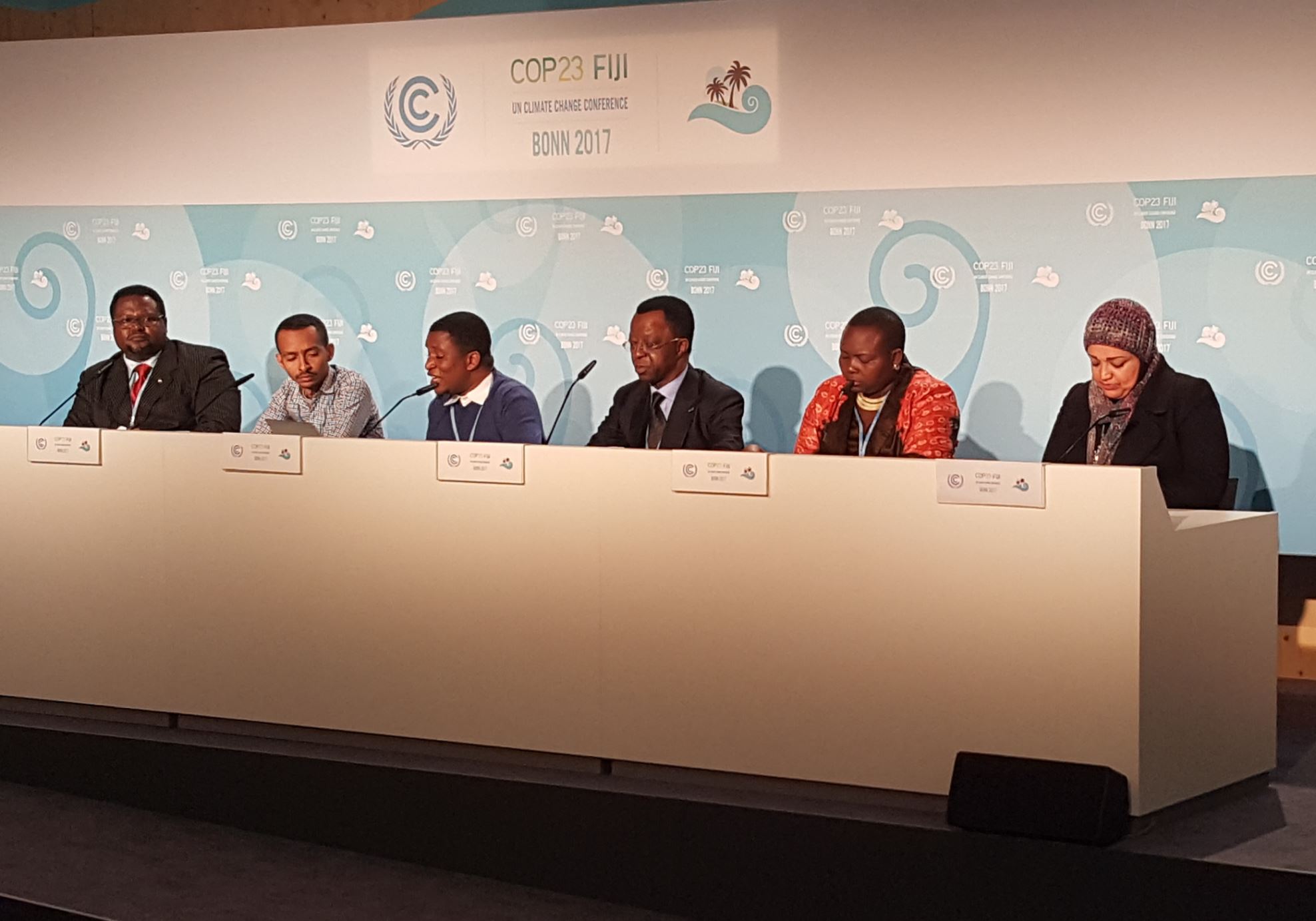Activist negotiators at the Bonn climate summit, led by the radical African Group, have forced through a plan of action that may well lead to the collapse of the Paris Deal in the next few years. Of course it is all about finance and the huge sums that the developed countries are supposed to pay the developing countries as compensation for causing climate change.
Crunch time was supposed to be 2020, when the developed countries are supposed to begin paying at least $100 billion a year. But the poorer countries, especially the Africans, do not want to wait that long. They say that substantial sums were promised to be delivered in the pre-2020 period. By and large this has not happened so the activists have insisted on a formal accounting.
The rest of the negotiators tried to ignore the activists, so the Africans took radical action. They refused to let the negotiations proceed until their demands were addressed. These negotiations operate on a consensus basis so the Africans won.
The Climate Home news service puts it this way: “Climate talks in Bonn have been held hostage for more than a week over the issue, as poor countries called for a space to hold the rich to account on their promises.”
Technically there was a compromise, in that the accounting will not take place in this Bonn summit, which the activists initially called for. But it will occur in the 2018 and 2019 climate summits.
This may well be a case of “beware what you wish for.” Reportedly the accounting is designed to put pressure on the developed countries, to force them to deliver the money. Instead it may have the effect of speeding up the time when it becomes clear that the developed countries will not be paying what it is claimed that they promised.
As things stood it seemed likely that the finance would hit the fan in 2020. This is especially true if President Trump is re-elected. But if by chance the Democrats were to win both the Presidency and the Congress then some sort of compromise might be possible. The 2020 climate summit occurs after the US elections.
But there is no chance that the present Trump Administration will pay anything in 2018 or 2019, when these so-called climate finance “stocktakes” will take place. Of course it is possible that the other developed countries will chip in the missing billions of dollars, but that is highly unlikely. France has just volunteered to replace the now ended US funding of the alarmist UN IPCC, but that is just a measly $2 million a year. Even at that, France is asking for other developed countries to share this tiny burden.
These stocktakes might even create a negative domino effect. Countries may react to the pressure by cutting back on funding. Countries seeing that others are paying less might decide to do the same. Two of the basic rules of fundraising are (1) don’t press too hard and (2) don’t let funders see that others are not keeping their pledges. The activist negotiators may well have grossly overestimated the will to pay on the part of the developed countries.
Many developing countries have said that if what they see as the promised money does not come then they will walk away from the Paris Agreement. This is because they have promised to take expensive action (thereby spending the big money).
No big money, no Paris Deal. Let’s hope so. How this plays out will be very interesting to watch, as the fall of Paris may come sooner rather than later.

Yay!!!
What happened to the $billion that Obama already gave away?
That was for “halting the rise of the oceans”. ——-We still need to cough up 1 billion for drought, a billion for floods, a billion for ice, a billion for no ice and a billion for hurricanes and tornados. Oh and a billion to sweep away all the dead eagles and bats from under the turbines.
Shoveled out the back door by the truckload, while everybody is distracted by the LGBT’s, BLM, Fascists, Communists, The war against Free Speech, and the 2ND Amendment, Constant (non-stop) global warming hysteria, Holyweird, Trump, Russians, the Hildebeast, 40 year old (allegations), you name it everything under the sun is being thrown at the “people”…
H.L.Mencken:
The urge to save humanity is always a false front for the urge to rule it.
Google Mencken and Hobgoblins and you’ll know the why and the what for..!
So they are not happy with the aid that is given already and want more, maybe what they are getting should be cut off.
Since saving the world seems to be so important to the E.U., Canadians, Australians and Japanese, I’m sure that they’ll pitch in and send plane loads of cash to make up for the lost billions caused by tyrant Trump! MAGA!